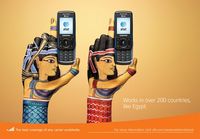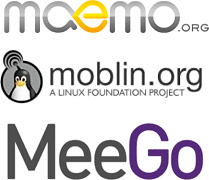
Having covered open source since 2005 I have one word for Mr. Schillinger.
No.
Schillinger seems to confuse open source, which is a software development and business model, with the computer revolution itself. (He also seems to think Wikipedia is open source — it's Creative Commons.)
Some of his confusion comes from having been at a government open source conference during the uprising. Listening to people like Aneesh Chopra, (who hosed Virginia Democrats with a massive defense contract for managing the state's computers, leading to a Republican takeover) gush about how open source development is neato can turn your head.
And open source can be good for government at all levels, if you realize it's a make-or-buy decision, and if you commit to building your own internal resources, not just buying systems from contracts as Chopra did. If you do that, then you can really take advantage of everything going on around you, the work being done both inside and outside government, and by ordinary people as well. As presently implemented, open source is just a badge contractors use and they're the only people pocketing the savings.
But getting back to Egypt.

Where money comes from the ground, these goods can be supplied to a minority that might then be engaged in oppressing the majority. When Iran pays off its oil field workers, it has enough for the security apparatus, and the people suffer. Where money does not come out of the ground, other arrangements become necessary.
That's because engaged, educated people demand autonomy, and they expect to be treated like adults by the institutions around them. The necessary tools of their lives, which now include PCs and Internet connectivity, show them that others are getting this and prospering. They demand the same. As noted here many times, freedom and democracy become mass market commodities, and the more of them you have the faster you can adapt to change.
Change is no longer just an intellectual process. What we can imagine, chips and networks let us build. Capital moves at the speed of light, it can move out as well as in. Reputations matter. In that kind of business environment getting with the program requires willing minds and open hearts. Tyrants can chain your body, but they can't get the most from any mind while the chains are on.
Technology is the revolution. Not open source. Open source is one way in which to build technology — everyone shares in the construction of something too complex for any one actor to build themselves. And people innovate on top of that. Open source itself is not "a model for innovation," as Schillinger calls it. It's a model on which innovation can be built, and the whole is greater than the sum of its parts.

Egypt and Tunisia are middle class revolutions, not open source revolutions. They are the products of mass education and engagement with the modern world, of prosperity and the common hope to get a little piece of it for ourselves. They are products of our modern world's abundance. Open source is an expression of technology's growing complexity.
Different things.











Dana:
First, I want to thank you for taking the time to respond to my article. Part of the excitement surrounding open source (at least for me) is the vigorous and healthy debate over its philosophy and relevance in real world applications.
I certainly do not attest to being an expert on open source, whether from a technical or a philosophical perspective. Nevertheless, I consider myself a strong advocate of open source platforms and my personal exposure to the open source world goes far beyond my participation in last week’s excellent conference hosted by the State Department.
As you note, the federal adoption of open source technology is not without its own problems, particularly when it relates to the convoluted and arguably broken system of contracting. The enthusiasm exuded by federal-level leaders such as Aneesh Chopra, however, should not be summarily dismissed as a result of your stated concerns. I, as the vast majority of my colleagues in attendance at Friday’s summit would agree, am excited to finally see growing acceptance of open source within government – in all of its forms.
I also respect your comments with regard to Egypt, and frankly, I do not see your conclusions as being entirely at odds with my own. Of course technology was a major factor behind the speed and efficiency of the revolution in Egypt; my use of the term “open source revolution” agrees with you on that point. I disagree, however, with your suggestion of merely calling Egypt a “middle class” revolution. The transformation in Egypt (and similarly with Tunisia, and I predict as well will see in other similar instances) was brought about by a far broader social discontentment with the prior state of affairs.
Furthermore, the uniqueness of the Egyptian revolution comes from the fact that it was not led by a specific social, economic, or political group; rather, it was cobbled together by a decentralized set of grievances and a collective desire to build and institute a better model of governance. Again, the notion of “open source” effectively captures the spirit.
Anyway, thank you again for sharing your thoughts.
And for the record, you are correct that Wikipedia is a Creative Commons resource. However, Wikipedia is also open source – both because of its use of the MediaWiki platform that is available freely and because of its adoption of the “wiki” model of open, collaborative contribution.
-RS
Dana:
First, I want to thank you for taking the time to respond to my article. Part of the excitement surrounding open source (at least for me) is the vigorous and healthy debate over its philosophy and relevance in real world applications.
I certainly do not attest to being an expert on open source, whether from a technical or a philosophical perspective. Nevertheless, I consider myself a strong advocate of open source platforms and my personal exposure to the open source world goes far beyond my participation in last week’s excellent conference hosted by the State Department.
As you note, the federal adoption of open source technology is not without its own problems, particularly when it relates to the convoluted and arguably broken system of contracting. The enthusiasm exuded by federal-level leaders such as Aneesh Chopra, however, should not be summarily dismissed as a result of your stated concerns. I, as the vast majority of my colleagues in attendance at Friday’s summit would agree, am excited to finally see growing acceptance of open source within government – in all of its forms.
I also respect your comments with regard to Egypt, and frankly, I do not see your conclusions as being entirely at odds with my own. Of course technology was a major factor behind the speed and efficiency of the revolution in Egypt; my use of the term “open source revolution” agrees with you on that point. I disagree, however, with your suggestion of merely calling Egypt a “middle class” revolution. The transformation in Egypt (and similarly with Tunisia, and I predict as well will see in other similar instances) was brought about by a far broader social discontentment with the prior state of affairs.
Furthermore, the uniqueness of the Egyptian revolution comes from the fact that it was not led by a specific social, economic, or political group; rather, it was cobbled together by a decentralized set of grievances and a collective desire to build and institute a better model of governance. Again, the notion of “open source” effectively captures the spirit.
Anyway, thank you again for sharing your thoughts.
And for the record, you are correct that Wikipedia is a Creative Commons resource. However, Wikipedia is also open source – both because of its use of the MediaWiki platform that is available freely and because of its adoption of the “wiki” model of open, collaborative contribution.
-RS
Dana got all excited about Egypt in an earlier blog (and managed to throw in some anti-semitism, some hatred towards people who don’t vote for Hussein Islamabad HopenChange, and – yes – some enviro-gaia hugging as well). The World Would Be Good (and oh – Big Oil was all to blame, now that Bush-bashing has become a bit stale). Yawn. All in all a typical Dana rant.
Reality. Egypt’s ‘revolution’ outcome is military rule and nothing else. Oh, and the only organized opposition is he islamic brotherhood (Iran 2). Oh wait, was it not that sharia-women-bashing group that Obama’s top security advisor described as ‘secular’?
Yep. We can see where our Indonesian Muslim butt-kisser in Chief wants to bring the USA to.
Dana got all excited about Egypt in an earlier blog (and managed to throw in some anti-semitism, some hatred towards people who don’t vote for Hussein Islamabad HopenChange, and – yes – some enviro-gaia hugging as well). The World Would Be Good (and oh – Big Oil was all to blame, now that Bush-bashing has become a bit stale). Yawn. All in all a typical Dana rant.
Reality. Egypt’s ‘revolution’ outcome is military rule and nothing else. Oh, and the only organized opposition is he islamic brotherhood (Iran 2). Oh wait, was it not that sharia-women-bashing group that Obama’s top security advisor described as ‘secular’?
Yep. We can see where our Indonesian Muslim butt-kisser in Chief wants to bring the USA to.
We are all so glad that this chaos comes to an end. I pray peace for Egypt and its people.
We are all so glad that this chaos comes to an end. I pray peace for Egypt and its people.
The whole words was hoping for peace at Egypt.
The whole words was hoping for peace at Egypt.
I believe we have moved into a century of massive, global collaboration, innovation, and ‘open’ solutions. There is a revolution taking place in the high tech industry as we continue to move to open source solutions. In education and publishing we are moving to open copyright, open access, open knowledge, and open journals. We’re seeing collaborative and ‘open’ news organizations, religious, and political movements. I think its very real, this period of ‘open’ revolution’ on all fronts, I just haven’t got a truly clear handle on what it really looks like, how it operates, and what its impact will be on us, our country, and our way of life. But something big is afoot – this is not just the Information Age, we’ve entered an Age of Open Revolution!
I believe we have moved into a century of massive, global collaboration, innovation, and ‘open’ solutions. There is a revolution taking place in the high tech industry as we continue to move to open source solutions. In education and publishing we are moving to open copyright, open access, open knowledge, and open journals. We’re seeing collaborative and ‘open’ news organizations, religious, and political movements. I think its very real, this period of ‘open’ revolution’ on all fronts, I just haven’t got a truly clear handle on what it really looks like, how it operates, and what its impact will be on us, our country, and our way of life. But something big is afoot – this is not just the Information Age, we’ve entered an Age of Open Revolution!
How The Internet Is Competing With Travel Agents For Vacation Planning
Travel agents once were the only way to go when booking a vacation. Today there is the Internet, which makes booking your own furlough easier than ever. While that may be true for some, travel agents are still the best way to go. Travel agents have spe…
We are all so grateful that this disorder comes to an end. I hope serenity for The red sea and its individuals.
We are all so grateful that this disorder comes to an end. I hope serenity for The red sea and its individuals.